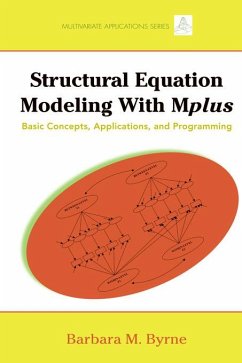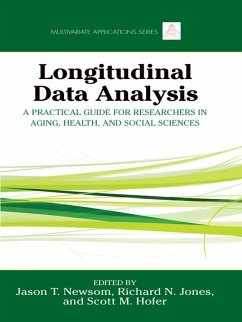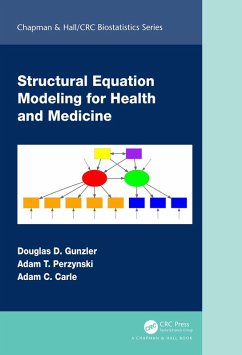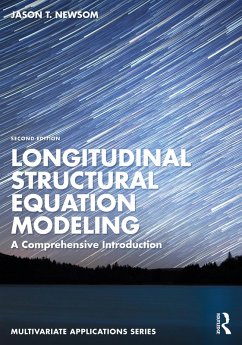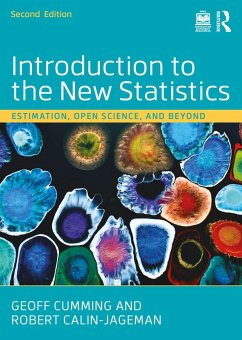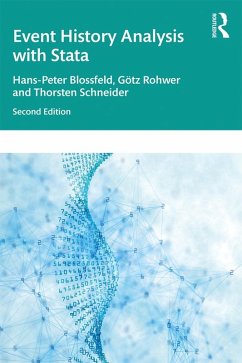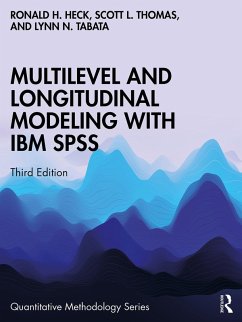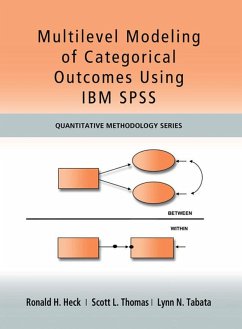
Longitudinal Data Analysis (eBook, ePUB)
A Practical Guide for Researchers in Aging, Health, and Social Sciences
Redaktion: Newsom, Jason; Hofer, Scott M.; Jones, Richard N.
Versandkostenfrei!
Sofort per Download lieferbar
55,95 €
inkl. MwSt.
Weitere Ausgaben:

PAYBACK Punkte
28 °P sammeln!
This book provides accessible treatment to state-of-the-art approaches to analyzing longitudinal studies. Comprehensive coverage of the most popular analysis tools allows readers to pick and choose the techniques that best fit their research. The analyses are illustrated with examples from major longitudinal data sets including practical information about their content and design. Illustrations from popular software packages offer tips on how to interpret the results. Each chapter features suggested readings for additional study and a list of articles that further illustrate how to implement t...
This book provides accessible treatment to state-of-the-art approaches to analyzing longitudinal studies. Comprehensive coverage of the most popular analysis tools allows readers to pick and choose the techniques that best fit their research. The analyses are illustrated with examples from major longitudinal data sets including practical information about their content and design. Illustrations from popular software packages offer tips on how to interpret the results. Each chapter features suggested readings for additional study and a list of articles that further illustrate how to implement the analysis and report the results. Syntax examples for several software packages for each of the chapter examples are provided at www.psypress.com/longitudinal-data-analysis.
Although many of the examples address health or social science questions related to aging, readers from other disciplines will find the analyses relevant to their work. In addition to demonstrating statistical analysis of longitudinal data, the book shows how to interpret and analyze the results within the context of the research design. The methods covered in this book are applicable to a range of applied problems including short- to long-term longitudinal studies using a range of sample sizes.
The book provides non-technical, practical introductions to the concepts and issues relevant to longitudinal analysis. Topics include use of publicly available data sets, weighting and adjusting for complex sampling designs with longitudinal studies, missing data and attrition, measurement issues related to longitudinal research, the use of ANOVA and regression for average change over time, mediation analysis, growth curve models, basic and advanced structural equation models, and survival analysis.
An ideal supplement for graduate level courses on data analysis and/or longitudinal modeling taught in psychology, gerontology, public health, human development, family studies, medicine, sociology, social work, and other behavioral, social, and health sciences, this multidisciplinary book will also appeal to researchers in these fields.
Although many of the examples address health or social science questions related to aging, readers from other disciplines will find the analyses relevant to their work. In addition to demonstrating statistical analysis of longitudinal data, the book shows how to interpret and analyze the results within the context of the research design. The methods covered in this book are applicable to a range of applied problems including short- to long-term longitudinal studies using a range of sample sizes.
The book provides non-technical, practical introductions to the concepts and issues relevant to longitudinal analysis. Topics include use of publicly available data sets, weighting and adjusting for complex sampling designs with longitudinal studies, missing data and attrition, measurement issues related to longitudinal research, the use of ANOVA and regression for average change over time, mediation analysis, growth curve models, basic and advanced structural equation models, and survival analysis.
An ideal supplement for graduate level courses on data analysis and/or longitudinal modeling taught in psychology, gerontology, public health, human development, family studies, medicine, sociology, social work, and other behavioral, social, and health sciences, this multidisciplinary book will also appeal to researchers in these fields.
Dieser Download kann aus rechtlichen Gründen nur mit Rechnungsadresse in A, B, BG, CY, CZ, D, DK, EW, E, FIN, F, GR, HR, H, IRL, I, LT, L, LR, M, NL, PL, P, R, S, SLO, SK ausgeliefert werden.




